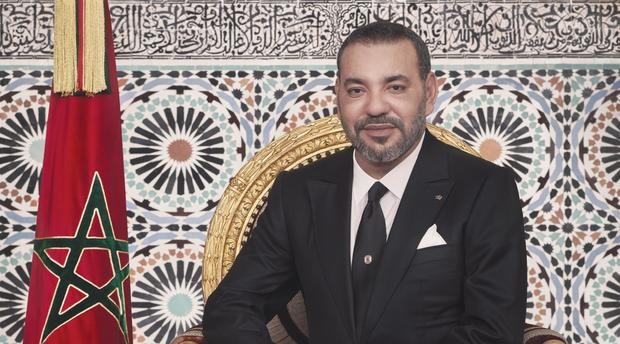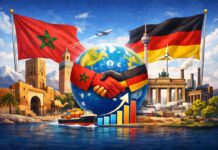As Morocco celebrates the 61st birthday of His Majesty King Mohammed VI, the nation reflects not only on the longevity and wisdom of its monarch but also on a remarkable reign that has profoundly transformed the country. Since ascending the throne in 1999, King Mohammed VI has guided Morocco with a visionary approach, positioning the Kingdom as a model of sustainable development and modernization within the Arab world and beyond.
Economic modernization and cutting-edge infrastructure
One of the most significant achievements of King Mohammed VI’s reign is Morocco’s economic modernization. The country has made tremendous strides in infrastructure development, with the Port of Tanger Med standing out as a symbol of this progress. Launched in 2007, it is now the largest port in Africa and the Mediterranean, connecting Morocco to over 170 ports worldwide.
In addition to Tanger Med, Morocco has revolutionized its transport sector with the introduction of the Al Boraq High-Speed Train in 2018, Africa’s first high-speed rail service. This train links Tangier to Casablanca in just two hours, enhancing internal mobility, boosting economic growth, and placing Morocco at the forefront of modern transportation on the continent.
Global leadership in renewable energy
Under the leadership of King Mohammed VI, Morocco has emerged as a global leader in renewable energy. The Noor Ouarzazate Solar Complex, one of the largest in the world, has become a beacon of Morocco’s commitment to sustainable development. This massive project is a cornerstone of the Kingdom’s goal to generate over 50% of its electricity from renewable sources by 2030.
Beyond solar energy, Morocco has also invested in wind and hydropower, establishing itself as a role model for many developing nations. King Mohammed VI’s energy policies have not only reduced Morocco’s reliance on fossil fuels but also positioned the country as a key player in the global fight against climate change.
Social reforms and human rights advancements
King Mohammed VI’s reign has also seen significant progress in human rights and social justice. The 2004 reform of the Moudawana (family code) was a pivotal moment for women’s rights, strengthening their position in Moroccan society regarding marriage, divorce, and child custody. This reform, often cited as a benchmark in the Arab world, has empowered Moroccan women, granting them greater autonomy and freedom.
Additionally, the King established the Equity and Reconciliation Commission (IER), a unique initiative in the region aimed at acknowledging and addressing past human rights abuses. This initiative has been internationally praised and marked a turning point in Morocco’s history, fostering national reconciliation and social justice.
Expanding international presence and active diplomacy
King Mohammed VI has also worked to elevate Morocco’s status on the international stage. The Kingdom’s return to the African Union in 2017 was a significant milestone, demonstrating Morocco’s commitment to African integration. Under his reign, Morocco has signed over 1,000 cooperation agreements with African nations, solidifying its role as a regional leader and mediator in conflicts.
Furthermore, Morocco has strengthened its ties with Europe, America, and Asia, diversifying its international partnerships. Today, Morocco is recognized as a key player in global diplomacy, actively contributing to peacekeeping efforts and international security.
A Kingdom in full renaissance
King Mohammed VI’s reign has ushered in a true renaissance for Morocco. The country has skillfully blended tradition with modernity, emerging as a development model for the region. With a clear strategic vision and strong leadership, Morocco has become a respected player on the international stage, boasting a dynamic economy, inclusive societies, and a growing cultural influence.
These 25 years of rule have enabled Morocco to achieve significant milestones in its development, promising an even brighter future under the enlightened leadership of King Mohammed VI.





